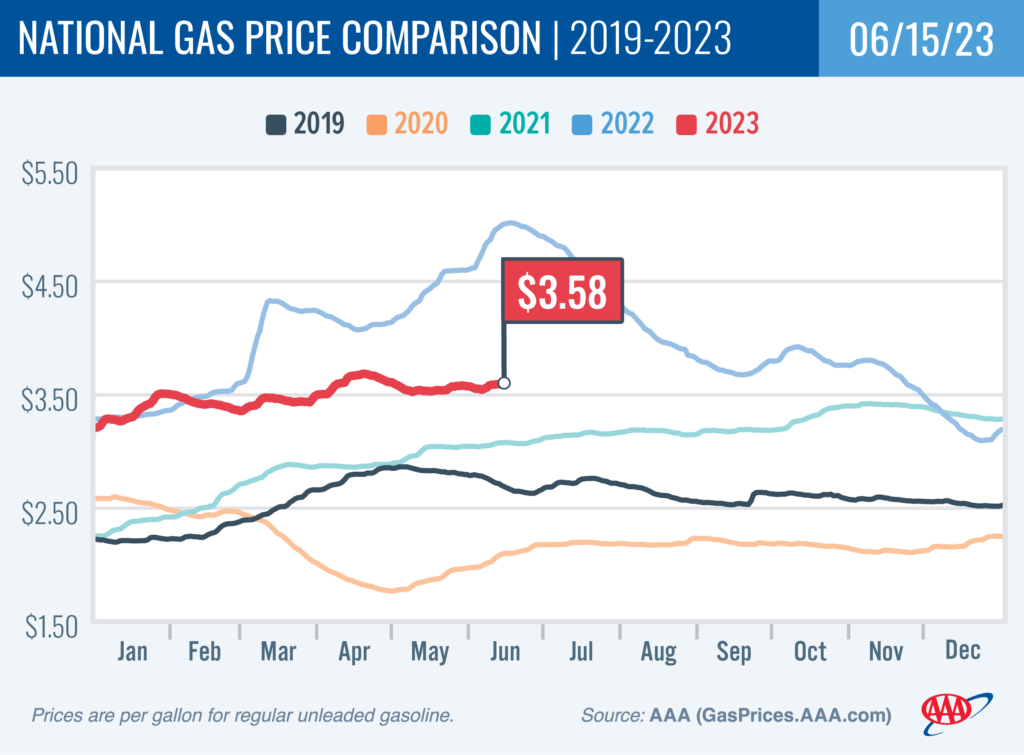WASHINGTON, D.C. — The start of summer is nearly here, and drivers are finding prices far lower than last year. Lackluster demand and low oil costs are keeping gas prices relatively stable. The national average for a gallon of gas rose two cents since last week to $3.58, that’s $1.43 less than a year ago.
“We may be in a bit of a demand lull heading into the July Fourth holiday,” said Andrew Gross, AAA spokesperson. “Drivers are benefitting financially, with 20 gallons of gas costing nearly $30 less than last year. And with the cost for oil low, drivers will find pump prices that are flat or drifting slightly lower for now.”
According to new data from the Energy Information Administration (EIA), gas demand decreased slightly from 9.22 to 9.19 million b/d last week. Meanwhile, total domestic gasoline stocks increased by 2.1 million bbl to 220.9 million bbl. Lower gas demand amid increasing supply has helped to limit pump price increases. If demand remains tepid, pump prices will likely fluctuate moderately through next week.
Today’s national average of $3.58 is five cents more than a month ago but $1.43 less than a year ago.

Quick Stats
- Since last Thursday, these 10 states have seen the largest changes in their averages: Oregon (+16 cents), Florida (+14 cents), Arizona (−14 cents), Illinois (+12 cents), Washington (+11 cents), Colorado (+8 cents), Kentucky (+7 cents), Alaska (+7 cents), Wisconsin (+6 cents) and Alabama (+5 cents).
- The nation’s top 10 most expensive markets: California ($4.88), Washington ($4.85), Hawaii ($4.73), Oregon ($4.49), Nevada ($4.27), Arizona ($4.21), Utah ($4.09), Illinois ($4.04), Alaska ($4.04) and Idaho ($3.97).
Oil Market Dynamics
At the close of Wednesday’s formal trading session, WTI decreased by $1.15 to settle at $68.27. Oil prices declined yesterday due to market concerns about the U.S. Federal Reserve resuming interest rate increases, which could tip the economy into a recession. If a recession occurs, oil demand and prices will likely decline. Additionally, the EIA reported that total domestic commercial crude inventories increased significantly by 7.9 million bbl to 467.1 million bbl last week.
Drivers can find current gas prices along their route using the AAA TripTik Travel planner.
